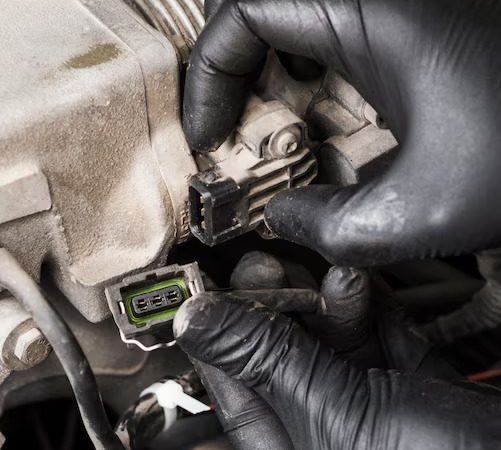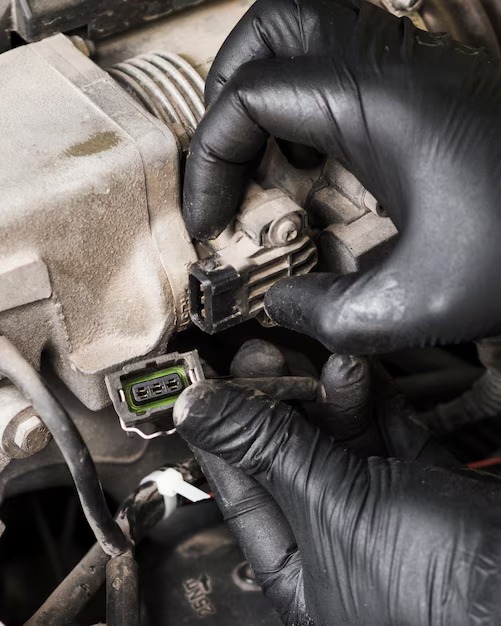Understanding the Different Common Types of Car Insurance Fraud

Understanding the Different Common Types of Car Insurance Fraud
In the realm of vehicle protection, misleading practices can manifest in numerous ways, impacting both consumers and providers alike. The intricate landscape of deception not only complicates the process of obtaining reliable coverage but also affects the overall perception of the industry. As individuals navigate their options, recognizing these malicious activities becomes essential in order to safeguard oneself from potential losses.
Unraveling the complexity of this issue involves examining the various methods employed by those seeking to exploit the system for personal gain. By delving into the underlying motivations and tactics, one can better appreciate the challenges faced by legitimate professionals. Additionally, understanding these fraudulent schemes enables individuals to make informed decisions, ultimately contributing to a healthier marketplace.
Awareness is a powerful tool in combating such deceptive practices. By equipping oneself with knowledge about the various fraudulent schemes that exist, drivers can protect their interests and contribute to a fairer environment for all. Continuous vigilance and education are paramount in ensuring that the integrity of the industry remains intact, fostering trust among consumers and providers alike.
Types of Auto Insurance Deception
In the realm of vehicle protection, certain schemes manipulate the system to gain unfair financial benefits. These actions not only undermine the integrity of providers but also impact the honest policyholders who play by the rules.
There are several common methods employed by individuals to exploit the system, including:
- Claim Padding: This involves inflating the actual costs of damages or medical expenses to receive a larger payout.
- Phantom Accidents: Some might report non-existent incidents, fabricating claims for compensation without legitimate evidence.
- Staged Collisions: Here, drivers orchestrate accidents where both parties are in on the scheme, leading to insurance claims based on the contrived situation.
- Vehicle Theft Fraud: Owners may falsely report their vehicle as stolen, only to benefit from the subsequent payout.
- Identity Theft: Fraudsters can utilize another person’s information to purchase coverage and submit false claims.
These deceptive practices can have serious repercussions, not only for insurance companies but also for all drivers. It is crucial to remain vigilant and aware of such unethical behaviors to protect oneself and the wider community.
Common Techniques Used in Fraud
Individuals aiming to exploit the system often rely on various deceptive methods to achieve their goals. These tactics, while differing in execution, share a common objective: to manipulate circumstances for personal gain. Understanding these schemes can help in identifying suspicious behaviors and preventing losses.
Staged Accidents
One prevalent method involves orchestrating collisions that never occurred. Participants may simulate an accident by deliberately causing a minor crash or positioning their vehicles to suggest an impact. By doing so, they can file claims for damages that are often exaggerated, leading to unwarranted payouts from providers.
False Claims
Another frequent approach is the submission of fabricated claims. This technique can encompass a variety of tactics, such as inflating repair costs, submitting receipts for nonexistent damages, or even staging thefts. The goal is to convince the provider of legitimacy, ultimately resulting in financial compensation that was never rightfully earned.
Red Flags for Insurance Companies
In the realm of risk management, certain patterns and behaviors can prompt skepticism among providers. Identifying these warning signs is crucial for maintaining integrity within the sector. Vigilance allows for the assessment of claims that may warrant further inquiry, helping to safeguard against financial loss.
Unusual Claim Patterns
Anomalies in claim submissions can raise suspicions. For instance, if a policyholder files multiple claims within a short timeframe or if there are inconsistencies in the details provided, it can indicate that further examination is necessary. Past incidents, especially if they coincide with significant policy changes or coverage upgrades, should also be noted.
Inconsistent Details
Discrepancies in information presented can be an immediate alert. When details of an event change upon subsequent inquiries or are markedly different from independent reports, it can undermine the credibility of a claim. Additionally, situations involving individuals who have a history of litigation can add another layer of scrutiny to the evaluation process.
Consequences of Committing Fraud
Engaging in deceptive practices can lead to severe repercussions that extend beyond immediate legal actions. Individuals who partake in such activities may face a variety of penalties that can affect their personal and financial well-being. Understanding the potential aftermath is crucial for anyone considering such actions.
Legal Repercussions
Committing dishonest acts often results in significant legal consequences. Offenders may encounter criminal charges, ranging from misdemeanors to felonies, depending on the severity of the actions taken. Convictions can lead to imprisonment, hefty fines, and a permanent criminal record, which may hinder future opportunities in employment or travel.
Financial Ramifications
Aside from legal troubles, financial implications can be devastating. Individuals found guilty of such actions are likely to face restitution requirements, wherein they must repay the amount acquired unlawfully. Moreover, the increased risk of scrutiny could lead to higher premiums or complete denial of coverage in the future, exacerbating their financial instability.
Moreover, the loss of trust from peers and organizations can result in a lack of support during challenging times, effectively isolating individuals. It is essential to weigh the risks against the potential short-term gains, as the long-term effects can be profoundly damaging.
How to Report Suspicious Claims
Addressing unusual requests for compensation is essential for maintaining a fair and just system. Individuals who encounter potential deception should know the proper channels to report their concerns. Prompt reporting helps protect not only oneself but also the larger community from dishonest practices.
It’s crucial to gather as much information as possible before making a report. This includes documentation, witness statements, and any other relevant details that could assist in the investigation. Clear and thorough communication is key to ensuring that authorities understand the situation accurately.
| Step | Action |
|---|---|
| 1 | Collect evidence: Gather all pertinent documents, photos, and any eyewitness accounts related to the claim. |
| 2 | Contact your provider: Reach out to your representative or the claims department directly to express your concerns. |
| 3 | File a report: Use the official channels, such as local regulatory bodies or specific fraud hotlines, to submit your findings. |
| 4 | Follow up: Inquire about the status of your report to ensure that it is being reviewed and investigated properly. |
Being proactive and vigilant can help in the fight against deceitful activities. By reporting any suspicious occurrences, individuals contribute to a fairer environment and help safeguard themselves and others from potential damages.
Protecting Yourself from Insurance Scams
Navigating the world of protection policies can be tricky, as unscrupulous individuals may attempt to exploit unsuspecting clients. It’s essential to recognize potential pitfalls and adopt proactive measures to safeguard your interests. By remaining vigilant and informed, you can reduce the risk of falling victim to deceitful schemes.
Start by researching the credentials of the provider you choose. Verify their reputation through independent reviews and consumer feedback. Engaging with a well-established and licensed firm can significantly decrease your chances of encountering dishonest practices.
Always scrutinize the offers presented to you. If a deal sounds too good to be true, it probably is. Low premiums paired with extravagant benefits should raise red flags, prompting further inquiry into the legitimacy of the proposal.
Be cautious of unsolicited communications, whether via phone or email. Scammers often establish contact under false pretenses, aiming to gather personal or financial information. Always verify the identity of the caller or sender before disclosing any details.
Keep thorough documentation of all interactions related to your coverage. This includes quotes, policy details, and communications. Having a comprehensive record can prove invaluable in case of disputes or if you need to report suspicious activity.
Lastly, educate yourself on common scams and emerging tactics. Awareness is your best defense, allowing you to spot discrepancies and unusual behaviors quickly. By taking these steps, you can better protect yourself against deceptive practices and ensure a safer experience in the realm of protection policies.
The Role of Investigative Agencies
Investigative organizations serve a crucial function in maintaining integrity within the realm of vehicle coverage. They utilize various methods to uncover deceptive practices, protecting both consumers and legitimate providers from financial losses. Through thorough examination and assessment, these agencies play a significant role in identifying and addressing unlawful activities.
Collaboration with Law Enforcement
Collaboration between investigative entities and law enforcement is essential. By sharing intelligence and resources, they enhance the capability to tackle malfeasance effectively. This partnership allows for swift actions against perpetrators, ensuring that justice prevails and deters future attempts at deceit.
Utilization of Advanced Technology
Modern technological advancements empower these organizations to conduct more refined analyses. Data mining, surveillance techniques, and forensic examination are tools at their disposal. By leveraging technology, they can access and analyze vast amounts of information, leading to improved detection rates of illicit schemes.
Q&A: Types of car insurance fraud
What is an insurance policy, and why is it important for car owners?
An insurance policy is a contract between the insurer and the policyholder that outlines the coverage provided for damages or losses. It is important for car owners as it protects them financially in the event of accidents, theft, or other unforeseen incidents.
How does the Coalition Against Insurance Fraud help combat insurance fraud?
The Coalition Against Insurance Fraud is an organization that brings together various stakeholders to raise awareness about insurance fraud, share information, and develop strategies to combat different types of fraud in the insurance industry.
What role does an insurance agent play in helping clients choose the right coverage?
An insurance agent assists clients in understanding their insurance needs and helps them select an appropriate insurance policy. They provide information about different coverage options and can help clients find ways to lower premium costs.
What are some common types of fraud that occur in the auto insurance industry?
Common types of fraud include staged accidents, exaggerated claims, and providing false information on applications. Each type of fraud can significantly impact the insurer and lead to higher costs for honest policyholders.
How does insurance fraud occur when someone exaggerates their injuries after an accident?
Insurance fraud occurs when someone exaggerates their injuries by claiming more severe pain or suffering than what actually exists. This can lead to inflated claims and increased costs for insurers, ultimately affecting all policyholders.
What should I do if I suspect my insurer is involved in insurance crime?
If you suspect your insurer is involved in insurance crime, you should document your concerns and report them to the appropriate regulatory authority or consumer protection agency. It is essential to ensure that fraudulent practices are addressed.
How can filing a claim after an accident lead to potential fraud?
Filing a claim can lead to potential fraud if the claimant provides false information or inflates the extent of damages. Insurers investigate claims thoroughly, and discrepancies can result in denial of the claim or legal consequences.
What can policyholders do to protect themselves from being victims of insurance fraud?
Policyholders can protect themselves by staying informed about common scams, keeping detailed records of their vehicles, and working only with reputable insurers and agents. Awareness helps them recognize suspicious activities.
How does an insurer investigate suspected cases of insurance fraud?
An insurer investigates suspected cases of insurance fraud by reviewing the claim details, interviewing involved parties, and gathering evidence. If fraud is detected, the insurer may deny the claim and report it to law enforcement.
What steps can individuals take to report suspected insurance fraud in their community?
Individuals can report suspected insurance fraud by contacting their state’s department of insurance or local law enforcement. Many states have hotlines or online forms specifically for reporting insurance-related crimes.
What is auto insurance fraud, and how does it impact policyholders?
Auto insurance fraud is when individuals or entities deceive an insurance company for financial gain, often leading to higher insurance rates for honest policyholders. It can result in increased premiums and strained resources for insurers.
What are the differences between soft fraud and hard fraud in the context of auto insurance?
Soft fraud involves exaggerating a claim or providing misleading information to obtain a higher insurance payout, while hard fraud refers to more blatant actions, such as staging accidents or deliberately causing damage to commit car insurance fraud.
How does the insurance application process help prevent auto insurance fraud?
During the insurance application process, licensed insurance agents verify the information provided by applicants. This helps reduce the risk of false information being submitted, which could lead to insurance fraud.
What types of insurance products are most susceptible to fraud?
Different types of insurance, including auto and health insurance, are particularly susceptible to fraud. Insurance fraud can take many forms, such as staging accidents or falsifying injuries following an accident.
How can individuals avoid car insurance fraud when filing a claim?
To avoid car insurance fraud, individuals should provide accurate and complete information when filing a claim. If something seems suspicious, they should report suspected fraudulent activity to their insurer immediately.
What are some examples of how car insurance fraud can take place?
Car insurance fraud can take many forms, including staging accidents, reporting a vehicle as stolen without it actually being taken, or exaggerating injuries following an accident to receive an insurance payout.
How does insurance fraud occur when someone exaggerates a claim?
Insurance fraud occurs when someone exaggerates a claim by providing misleading information about damages or injuries. This dishonest action can lead to severe penalties if discovered, including jail time for those involved.
What is the financial impact of auto insurance fraud on families?
Fraud costs the average family billions per year in higher premiums. Insurance companies pass on the costs associated with fraudulent claims to all policyholders, resulting in increased insurance rates.
How does the NAIC assist in combating auto insurance fraud?
The NAIC (National Association of Insurance Commissioners) provides resources and guidelines for states to develop effective measures against auto insurance fraud. They promote best practices and share information on reporting fraudulent activity.
What should someone do if they suspect their agent is involved in dishonest insurance practices?
If someone suspects that their agent is involved in criminal activity or premium diversion, they should report their concerns to the appropriate regulatory authority. Taking action can help protect others from potential auto insurance fraud.








